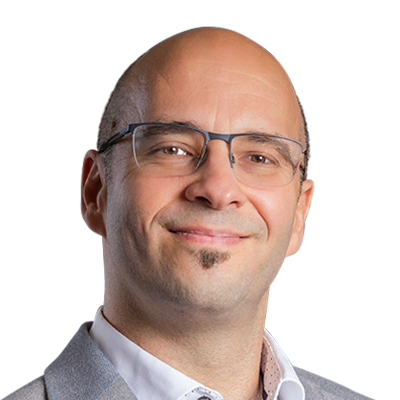In Worldcoin’s World, Data Is Currency and Privacy Is Dead
 |
| By Jurica Dujmovic |
In the ever-evolving landscape of cryptocurrency, Worldcoin (WLD, Not Yet Rated) has recently emerged as a unique yet controversial player.
Founded in 2019 by OpenAI CEO Sam Altman, along with co-founders Max Novendstern and Alex Blania, Worldcoin is a biometric cryptocurrency project with the ambitious goal of "creating a more unified and equitable global economy."
So far, Worldcoin has raised over $200 million from venture capital funds like Khosla Ventures and Bain Capital. Additionally, it’s backed by venture capital firm Andreessen Horowitz.
However, its critics have already raised concerns about privacy, exploitation of impoverished people and Worldcoin’s potential to become a global identification system for increasingly authoritarian governments.
But before we dive into the details, let’s cover the basics.
What in the World Is Worldcoin?
My colleague Marija Matić touched on this a few weeks ago. But at the heart of Worldcoin's operation is a futuristic device called the Worldcoin Orb, which was built with the help of a top Apple (AAPL) designer. It’s basically a shiny, grapefruit-sized device with one purpose: to scan and record the biometric image of your iris.
The image is then converted into an impenetrable string of numbers, called IrisCode. Combined with an algorithm, this code verifies that you're a unique human and confirms it via an app on your phone.
To date, approximately 1,500 devices have been made, with more on the way. The company is offering the Orb service in 35 cities around the world and is in the middle of a tour that will bring the device to a series of pop-up sites.
Those who agree to get their irises scanned will receive a small number of Worldcoin, also known as WLD. This token currently trades at a little over $2 each and will be distributed via airdrop.
In other words, Worldcoin will be sent directly to the wallets of eligible participants, rather than being listed on an exchange. Although U.S. users are currently ineligible for the airdrop due to regulatory concerns, this could change soon.
Looking ahead, Worldcoin envisions a world where its tokens are part of a larger ecosystem with a wide variety of services that verify identity with iris scans. The company also believes its project could become a part of a futuristic universal basic income scheme.
However, safety and privacy remain a major concern.
Worldcoin claims its Orb is designed in a way that no one — including the company — can identify you thanks to an advanced privacy technology called zero-knowledge proof.
While it’s considered effective by privacy experts, critics have warned it’s dangerous to give your biometric data to a private company, and some say they don’t trust Worldcoin to act responsibly.
In fact, there have already been multiple studies done on Worldcoin’s privacy issues.
Back in April 2022, a report from the MIT Technology Review highlighted Worldcoin’s predatory practices in low-income countries. The article states that the company took advantage of impoverished people — who may not fully understand the implications of providing their biometric data — to grow its network.
Then, in May 2023, TechCrunch reported that several Worldcoin Orb operators had their passwords stolen during a cyberattack, granting hackers full access to the Worldcoin operator dashboard. This incident raises serious questions about the company's ability to protect the sensitive data it collects.
Still, arguably the biggest problem with Worldcoin lies in its ultimate goal. Namely, requiring individuals to provide their iris scans to participate in the digital economy it aims to create is setting a dangerous precedent.
In a world where data has become a new form of currency, the power dynamics surrounding its collection and control are of paramount importance.
Biometric data like iris scans are particularly sensitive, since it can’t be changed like a password or credit card number if it falls into the wrong hands.
Once your iris scan is collected, it remains out there for good. And without an airtight security system storing and protecting your biometric data, there’s a possibility of it being stolen or misused.
For instance, I’m sure authoritarian governments like the Chinese Communist Party would love to have the Worldcoin Orb in its arsenal. This would provide it with an even easier way to control millions of citizens who are already subjected to multiple layers of biometric checks.
There’s also the issue of whether people who do not provide iris scans are left out of this digital economy. And whether this data is being collected ethically, rather than manipulating or coercing people into providing their iris scans.
In my opinion, these issues need to be addressed and make Worldcoin extremely problematic. But to get a broader perspective, I consulted three experts in the field.
3 Expert Opinions on Worldcoin
The first expert joining me today is Nick Dazé, CEO of Heirloom — a web3 platform that provides credentials and personhood on the blockchain.
He pointed out that OpenAI quietly shut down its AI detection project, a move he finds problematic. He believes this issue is not receiving the attention it deserves, suggesting a lack of transparency that could potentially impact the Worldcoin project.
Then, he criticized Worldcoin’s approach to building its database. Namely, he accused the project of preying on the poor and implied that the project’s current approach may not be sustainable or ethical.
Furthermore, Dazé highlighted the managerial connection between OpenAI and Worldcoin, suggesting that this relationship should raise eyebrows. To be specific, he expressed concern about a powerful entity having immediate access to billions of retinas for quick identification.
Drawing parallels with leading AI projects in China that enable identification through cameras, Dazé warned of the potential dangers of such technology when controlled by a single company.
On the other hand, Michael Schricker, a web3 and crypto marketing executive at Governor DAO, was markedly more optimistic.
He emphasized the importance of "proof of personhood" in this increasingly digitized and now AI-disrupted world. But he also pointed out major discrepancies between Worldcoin’s messaging and actual materials, which he believes erode trust in the project’s ability to enable human authentication.
One major area of concern for Schricker is the coercion of users to divulge their iris data in order to maintain good standing and receive Worldcoin’s proprietary token. He pointed out that it is still unclear what this data can ultimately be used for, raising questions about the project's commitment to user privacy.
Even though Schricker acknowledged Worldcoin’s “meaningful and difficult mission,” he still expressed doubts about the project building up enough trust to play an authoritative role in human authentication and the implementation of a universal basic income.
Last but not least, Graeme Moore, head of tokenization at the Polymesh Association, was skeptical about Worldcoin's claim to "create a more unified and equitable global economy."
In his view, giving people $50 in exchange for a scan of their eyes does not necessarily achieve this goal.
He also raised concerns about black market Know Your Customer verifications for the Worldcoin World App. In particular, he suggested that this could allow individuals to amass large amounts of Worldcoin and potentially enable AI bots to overpower the proof-of-personhood mechanism.
Now, Moore doesn't have a significant issue with Worldcoin incentivizing data collection by paying individuals with tokens. He compared it to people giving their personal information to Google, Meta (META) or Twitter.
However, he expressed concern about data collection and retention, emphasizing the importance of creating proper safeguards around collecting and storing personally identifiable information — especially biometric data.
He highlighted the investigations into Worldcoin by Germany and other governments, warning that iris scans of millions of people falling into wrong hands would be catastrophic.
Looking ahead, Moore does not see Worldcoin having any major impact on the global cryptocurrency landscape. He described it as "nothing special" in a sea of alternatives and expressed a clear preference for Bitcoin (BTC, “A-”).
Conclusion
Despite its ambitious goals and significant funding, Worldcoin's quest for global acceptance is facing severe backlash.
Critics argue that the project has not adequately addressed the issues of privacy, security and ethical considerations surrounding the use of biometric data and its potential use as a global ID system.
It has failed to win the trust of not only the public but also influential voices in the field, many of whom question its promises, methods and implications.
However, Worldcoin is just one of many similar projects coming out of the woodwork in recent years.
Above all else, this should be a warning and a reminder to keep your data safe and to be incredibly cautious when even trusted companies ask for your data. The potential for misuse, exploitation and violation of personal rights is real.
As the world continues to digitize, the need to navigate this complex landscape with caution, transparency and respect for human rights becomes more vital than ever.
Despite its lofty ambition and extensive funding, Worldcoin represents the treacherous intersection of advanced technology and ethical dilemma. Its invasive nature and the vast implications of iris-based identity verification call into question the morality, privacy and security practices underpinning such initiatives.
As we chart the course for an increasingly digital economy, we must ensure that we don't compromise the very essence of our individuality in the pursuit of progress and inclusion.
After evaluating Worldcoin, the key takeaway is clear: rigorous safeguards and the utmost transparency are crucial to ensure a digital future that respects, protects and benefits all.
Best,
Jurica

